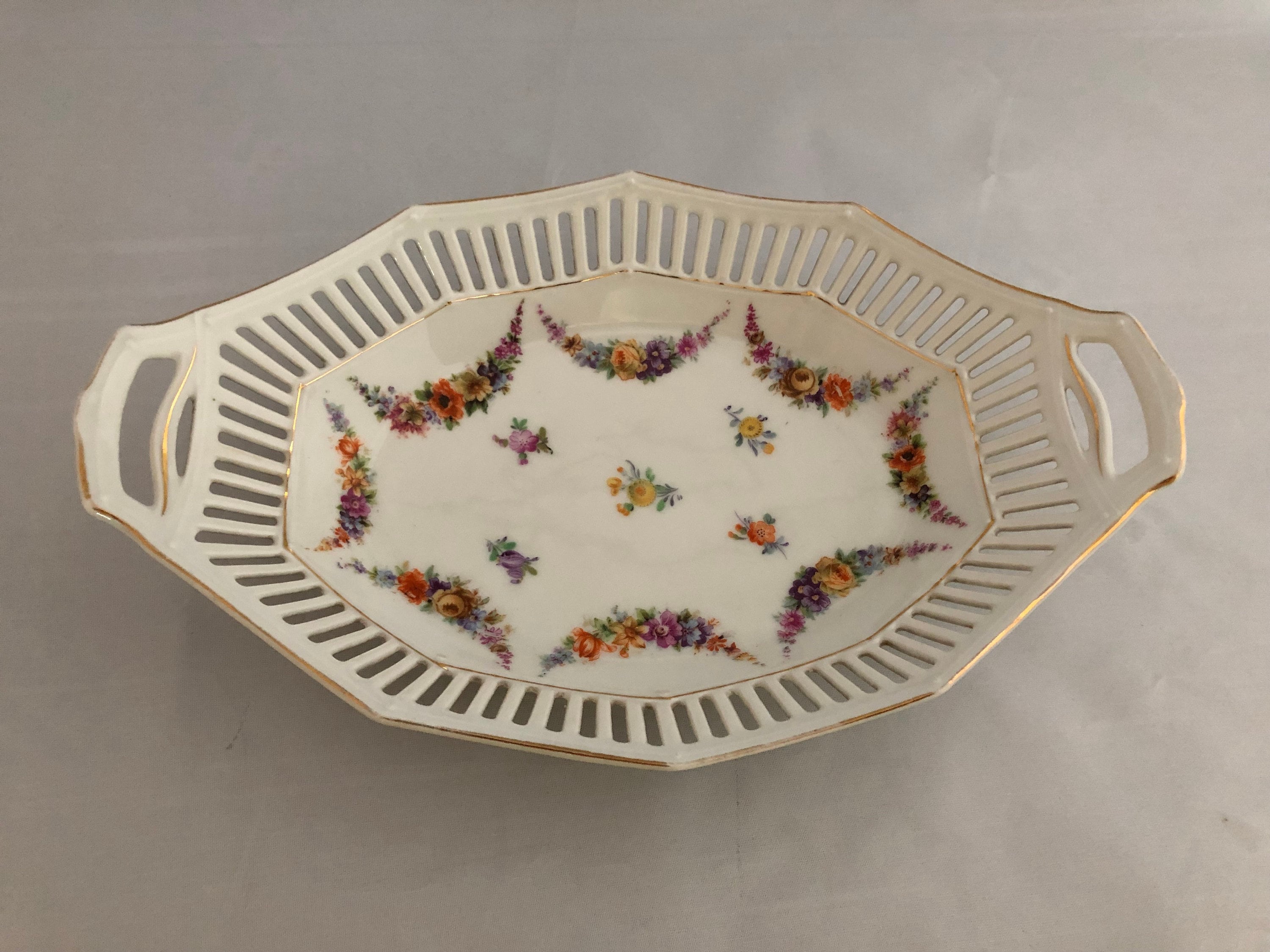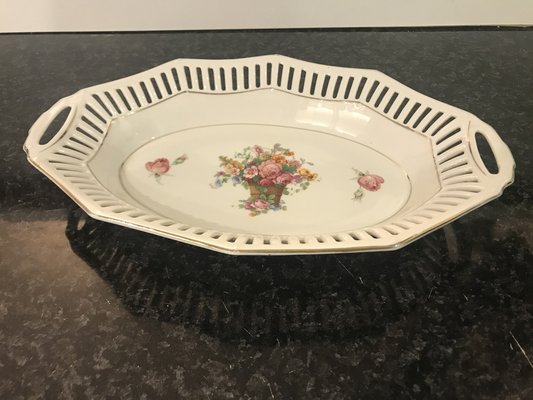Schumann Bavaria Dish-Eleanor Made in Bavaria Circa 1940's Mother's Day Idea, Retro Decor, Excellent deals vintage condition
Schumann Bavaria Dish -Eleanor Made in Bavaria Circa 1940's Whimsical Gift Idea, Retro Decor, Excellent vintage condition
It is interesting to note that the Carl Schumann company had good business relations with companies from U.S. Carl Schumann's factory, Porzellanfabrik ⇒A.G. , was one of the few German companies allowed to produce Mickey Mouse figurines under licence from Disney. They used an ad created by Zereiss & Co. to promote these porcelain products, featuring little Mickeys performing a traditional Bavarian dance. Most of these so-called 'un-aryan' products were destroyed during the Third Reich period from 1934 to 1945 and are therefore among the rarest European pre-war Disneyana collectibles.
Following WW2 the company supported many former Sudeten Germans by offering housing and employment. After founding the house building company, deals Schumann-Wohnungsbau G.m.b.H., in 1950, eventually tried to match former success, reaching its maximum number of 1053 workers and 70 salaried employees in 1953/1954. There was a high demand for their items in the local market but at the same time export numbers decreased dramatically as more and more cheap imports from Japan were flooding the U.S. market and slowly pushing European and especially German items aside. Carl Schumann II resigned in 1961, leaving the business to his son Carl Schumann III before dying in 1975 and having in the meantime been town mayor and declared freeman of Arzberg.
Carl Schumann III during the next few years started the modernization and rationalization of the factory and drastically restructured and downsized the product range. These steps resulted in a much smaller workforce required to run the factory (merely 350 people) but business still steadily declined. The granddaughter of Carl Schumann I, business graduate Sabine Schaefer, finally took over as manager in 1981 and greatly improved business relationships not only in Germany but also in Europe and the USA. A few years later however, German reunification caused drastic changes as former state-owned and then privatized East German companies all fought for shares on the German market.





